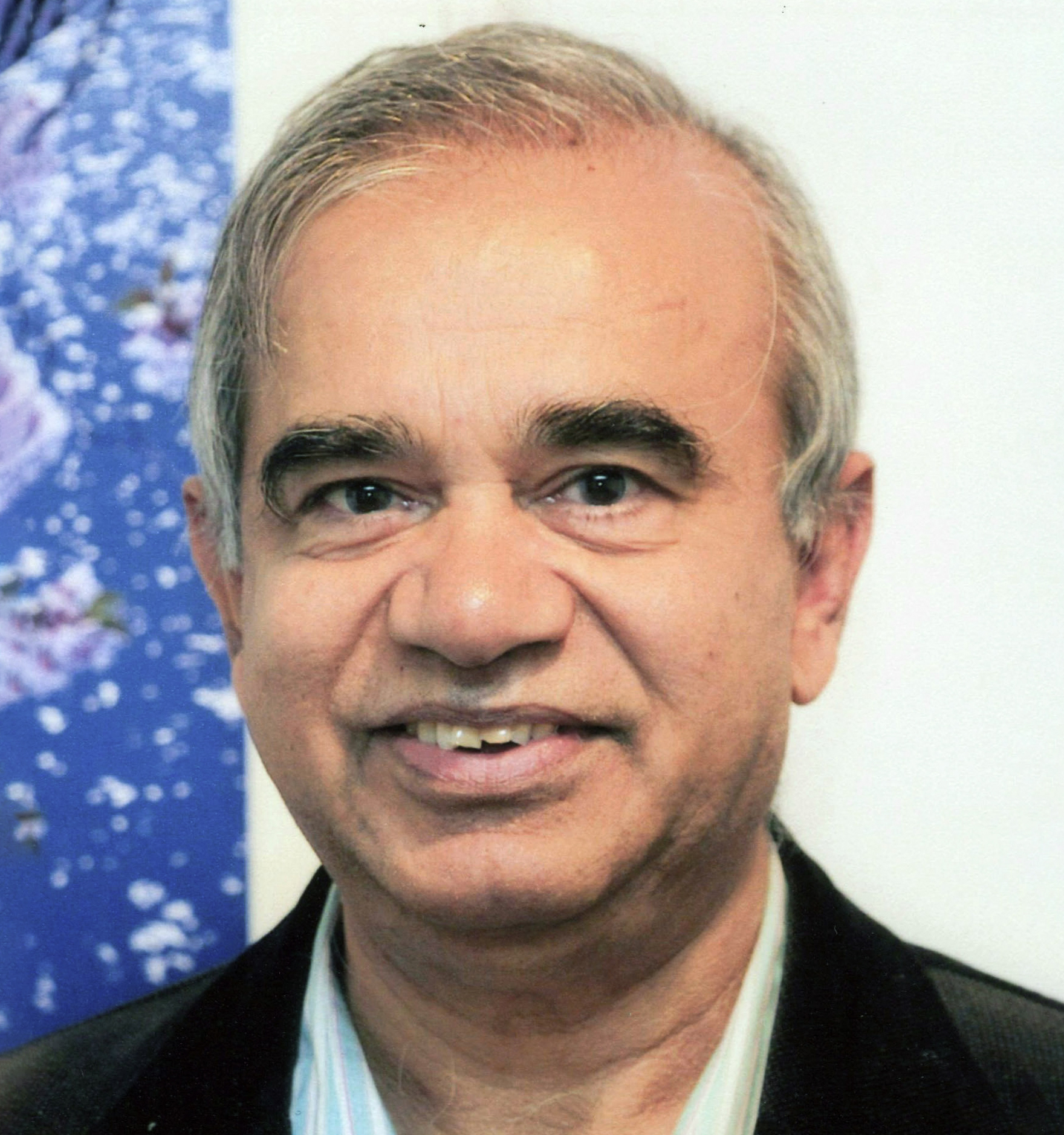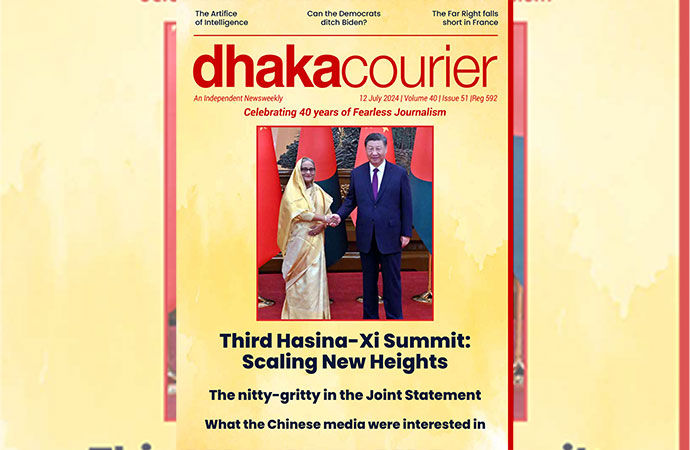Column

Japan’s former Foreign Minister Fumio Kishida attends a press conference at the headquarters of the Liberal Democratic Party after he was elected as party president in Tokyo Wednesday, Sept. 29, 2021. Kishida won the governing party leadership election on Wednesday and is set to become the next prime minister, facing the imminent task of addressing a pandemic-hit economy and ensuring a strong alliance with Washington to counter growing regional security risks. Photo: AP/UNB
In his first policy outline speech delivered in early September at the launching of his candidacy for the leadership race of Japan's ruling Liberal Democratic Party (LDP), former foreign minister Fumio Kishida made a bold announcement by suggesting that Japan should strive for a new form of capitalism that would reduce income disparity. He was blunt enough in criticizing earlier administrations for ignoring the plight of ordinary citizens, as he hinted that the neo-liberalism and deregulation that Japan has embraced since the early 2000s have widened the gap between the haves and have-nots in the society. It was something new coming from a politician who has been an insider of Japan's power broker elites since the early days of his engagement in politics. Now that his position as Japan's next prime minister has been ensured after the end of a closely contested race, how far he would be willing to moving forward to fulfil this commitment is a matter that will be closely watched by Japan observers.
The leadership race of LDP was a race between four candidates, each with a different priority and policy goal. During the three-week long campaign, another foreign minister and minister in-charge of country's vaccine program, Taro Kono, was seen by the public and also by the media as the leading contender to replace Yoshihide Suga, whose announcement of resignation triggered the leadership race. Suga was increasingly becoming a burden for the party as his rapidly declining support rate alarmed party leadership that LDP might face an election debacle unless Suga is replaced by someone with a positive image. The current term of Japan's lower house of the Diet is to expire soon and a general election is due by mid-November. So, the searching process for someone less controversial and less unpopular to replace Suga was actively on. The first LDP leader to announce his candidacy for the party presidency was Kishida, who a year ago lost his bid to Suga with a big margin.
LDP is Japan's largest political party with a long and unparallel history of being the main ruling party of the country. Formed in 1955 with the merger of two conservative groups at the time, LDP had swept virtually all general elections since then. The party was out of power only in two occasions for a relatively short period of time, though made a comeback soon after. The first brief spell after the 1993 lower house elections lasted roughly for about ten months, the end of which saw LDP back in the helm with the partnership of party's erstwhile rival the Socialist Party. The second time was in 2009, which saw LDP's share in parliamentary seats reducing to all time low. The party had to wait for three long years to regain the lost position, which was helped largely by the infighting within the new ruling block, as well as few other factors emerging unexpectedly; like the massive earthquake-tsunami of March 2011 followed by the nuclear disaster. In the snap election called in December 2012, LDP swept back to power with a massive victory and the party is still going strong almost a decade after. Though much of the credit for this later success has been given to the former Prime Minister Shinjo Abe, it was also the paranoid weakness of the opposition that too helped LDP to hold the ground. During this second spell of LDP's return to power, Abe has become the longest serving prime minister of Japan with the LDP being regularly bashed by the Japanese press for going back to the old practice of money politics.
It should be noted that despite being a single political party with a declared platform of policy guidelines, LDP in reality is a loose coalition of right-wing political groups with a common interest of keeping the opposition at bay. As a result, faction politics within the party is a common feature that also allows faction leaders to exert extremely strong leverage, particularly over the decisions of who is to get what in the process of forming the government. Faction leaders, or the Shadow Shoguns, usually tend to remain in the background, where from such shady figures skilfully keep on playing the power game. The latest leadership election too, was not any exception.
Soon after the first two aspiring candidates made the announcement of their willingness to run, all concerned groups started doing mathematical calculations cantered on who might get how many votes based on getting the blessings of faction leaders. LDP leadership election is a carefully devised system which ensures that faction leaders' position is not undermined or ignored. In the first round of voting each of party's Diet members has a single vote, whereas the rank and file members all over the country jointly share equal number of votes as the Diet members. In the latest election, for example, 384 LDP members of both the houses had one vote each, where as the rank and file jointly had that many number of votes. Out of the total 768 votes, the winning candidate needed to get the backing of at least more than 50 percent for being successful. In the case of no candidate securing that much support, a runoff election is held between the two front runners in which the voting pattern changes dramatically. In the run off voting, Diet members' position remains unchanged. However, the rank and file's proportion of vote gets drastically cut down as each of 47 prefecture chapters of the party is allocated a single vote. As a result, in case of a run off, the Shadow Shogun's position becomes much stronger and it is this group of inner leadership that plays the crucial role in ensuring who is going to win.
The two latecomers in the presidential election were two ladies having the blessings of outsiders who might have calculated the voting pattern and pushed for their candidacy, knowing perfectly well they were not going to make it, but would be essential for being spoilers; crucial for disrupting any undesired outcome in the first round. The voting pattern also might give evidence in support of such assumption. If there had been just two candidates, the outcome would have been quite clear as Taro Kono had been all along ahead in the counting of rank-and-file support. After the first-round vote counting, both Kishida and Kono had neck and neck run, with Kishida getting 256 votes against Kono's 255. Right at that moment the fate of Kono was probably sealed off, as it became clear that with the proportion of rank-and-file vote reducing drastically to a mere 10 percent, his chances of making it this time was disappearing fast.
To the Shadow Shoguns of Japan's main ruling party, allegiance of loyalty is extremely important and among the two Kishida, though not belonging directly to any of the main factions, was probably seen as someone easy to control. Kono, on the other hand, had already been known as a maverick with his own ideas of running the affairs of state. Moreover, his direct involvement with group of supporters through twitter and other social media accounts was another factor that might have annoyed backdoor manipulators, who had taken him more as a free thinker who might use that support base to appeal directly to the people. Hence the choice for them was a politician with a traditional mind-set along with a gentle manner, but docile at the same time. Vote count in the second round is an indication that the assumption might not be far from reality. In the second count Kishida managed to increase his voting by a single count, whereas Kono saw support for him dwindling fast to a mere 170, a far cry from 255 he secured in the first round.
Now that Kishida is in the helm, the bargain for cabinet and party positions is already on, with media reports hinting of possible rewards for those helping him directly or covertly in getting elected. However, a crucial test for him will be next month's lower house election, where any setback for LDP might effectively open the possibility for him to become another revolving door prime minister of Japan. Until then he has time to come up with what he in reality intends to do not only for fixing an economy that has been damaged further by the prolonged corona virus emergency, but also how he is going to proceed in the diplomatic field, as an assertive China is becoming an increasing headache for the Japanese leadership.
(Tokyo, September 30, 2021)

























Leave a Comment
Recent Posts
How China's reform benefit the ...
"It's very clear that China has entered a new era under Presi ...
How do we heal?
After the unprecedented violence of the past two weeks, the most impor ...
The High Court fixed July 25 for delivering verdicts
Biden’s legacy: Far-reaching accomplishments that di ..
US President Joe Biden dropped out of the 2024 race
“A kiss over bribe”: Nachiketa’s social message to D ..